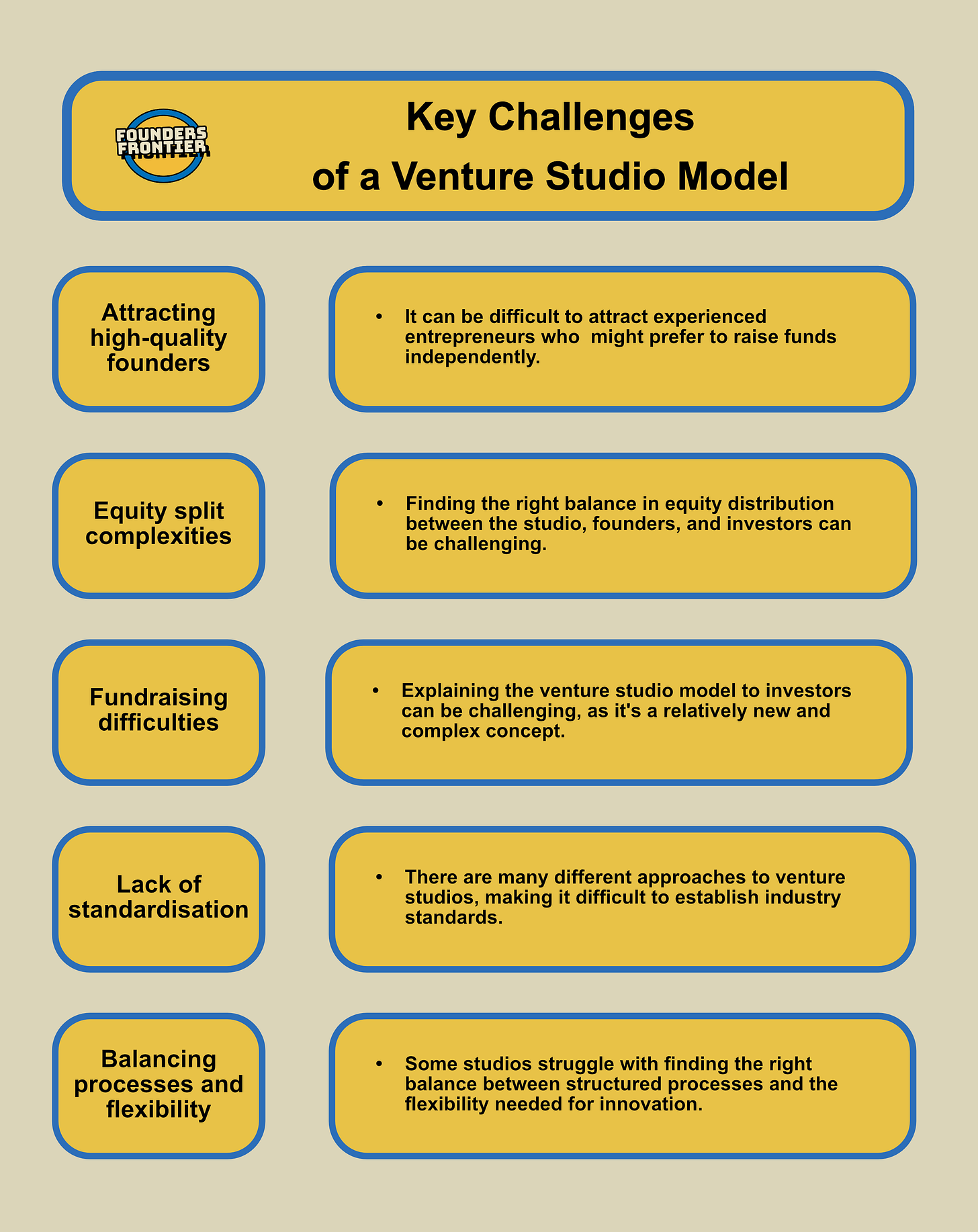The Rise of Venture Studios with Max Pog: Reimagining the Future of Startup Creation
We want to start a new journey of understanding how the very important industry of Venture Studios looks like over the next 3 to 5 years.
When Max Pog’s LinkedIn post on venture studios unexpectedly attracted over 2,000 comments, it became clear he’d tapped into a larger conversation. “I shared a simple announcement, and the response was overwhelming,” Max said, reflecting on his sudden visibility. Inspired, he decided to dig deeper into the venture studio model, evolving from a seasoned entrepreneur to one of its most prominent advocates.
A team dedicated to testing and validating
Max's approach is refreshingly pragmatic: assemble a team dedicated to testing and validating a stream of business ideas, leveraging shared resources across multiple startups. “I wanted a team that could focus entirely on experimenting with my ideas,” he shared, hinting at the sheer volume of concepts he had in mind. Through this model, Max found a way to turn his conference organising and community-building experience into a launchpad for new ventures, bringing the venture studio movement to the forefront of startup creation.
However, Max doesn’t shy away from the model's hurdles. Building a successful studio demands top-tier entrepreneurs, carefully negotiated equity arrangements, and a steady source of funding. He’s quick to highlight that the venture studio model is not a one-size-fits-all solution; it requires deep industry knowledge to truly support and scale startups effectively. “Studios have their own set of problems… it’s far from easy,” he admitted.
Despite the complexities, Max remains enthusiastic about the model’s future. He imagines a more interconnected landscape where studios exchange knowledge and best practices, fostering a collective growth that mirrors the collaborative spirit of the early internet. For Max, the potential for cross-studio cooperation is crucial—not just for individual success but to strengthen the entire ecosystem.
2,000 studios in the next five years
Looking ahead, Max refrains from bold forecasts but suggests that the number of studios could double within five years as more entrepreneurs recognize their potential. He’s also intrigued by the idea of creating standardised agreements for founders and investors, which he believes could streamline operations and reinforce trust. “I think we could see around 2,000 studios in the next five years,” Max speculated, hinting at a future where operational frameworks make studio partnerships more accessible.
However, the venture studio model isn’t without its detractors. Critics argue that attracting experienced co-founders is challenging, as many prefer to raise funds independently rather than sacrifice substantial equity to a studio. Establishing a venture studio can also be prohibitively expensive, often requiring millions upfront. Moreover, the lack of standardized processes can be a deterrent for investors accustomed to traditional venture capital models.
A recurring point of debate is the transparency around startup failures. While venture capital firms can mask individual failures by reporting aggregated metrics, venture studios can’t easily do the same. Venture capital firms benefit from portfolio diversification, where success in a few investments can offset losses. In contrast, venture studios are directly involved in their startups' creation and development, meaning a failed startup reflects visibly on the studio itself. This hands-on involvement makes failures harder to conceal and may contribute to investor hesitation.
Will studios compete with each other?
In a lighter moment, Max was asked to imagine a boxing match between venture capital and venture studios. He gave venture capital the edge in today’s environment, citing its established popularity and acceptance among startup investors. Still, he sees a future where studios become fierce contenders. Max believes that venture studios, particularly those with industry-specific expertise, could outperform traditional venture capital through their hands-on role in building companies from the ground up.
Max Pog’s journey underscores the evolution of venture studios, with his focus on collaboration and transparency positioning him as a significant voice in shaping the future of entrepreneurship. As more studios emerge, Max’s vision of a cooperative and standardised landscape could well be the key to unlocking faster, more resilient pathways for new startups.
Comments, thoughts? Hit the reply button and Sarah, Will, and Matthieu will get in touch!
More of a visualiser? Check out our two infographics on Key Elements of a Successful Venture Studio Model and Key Challenges:






